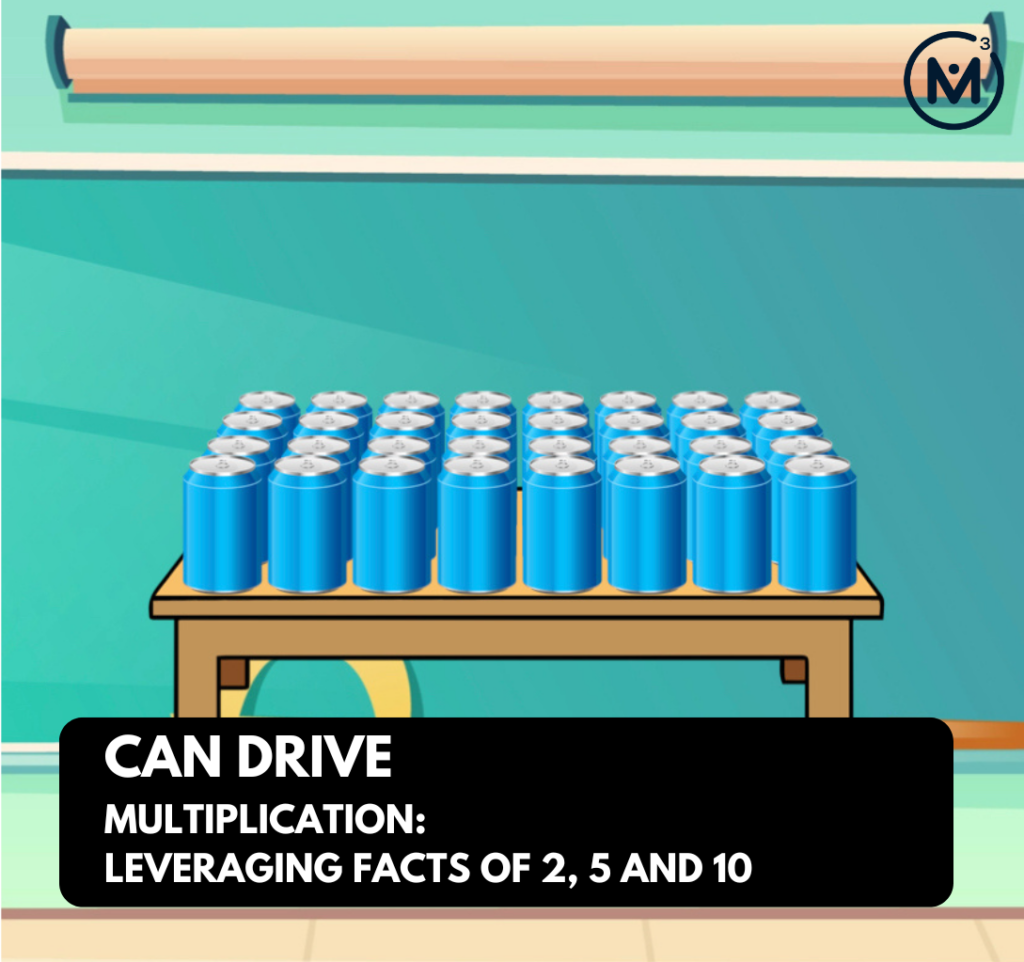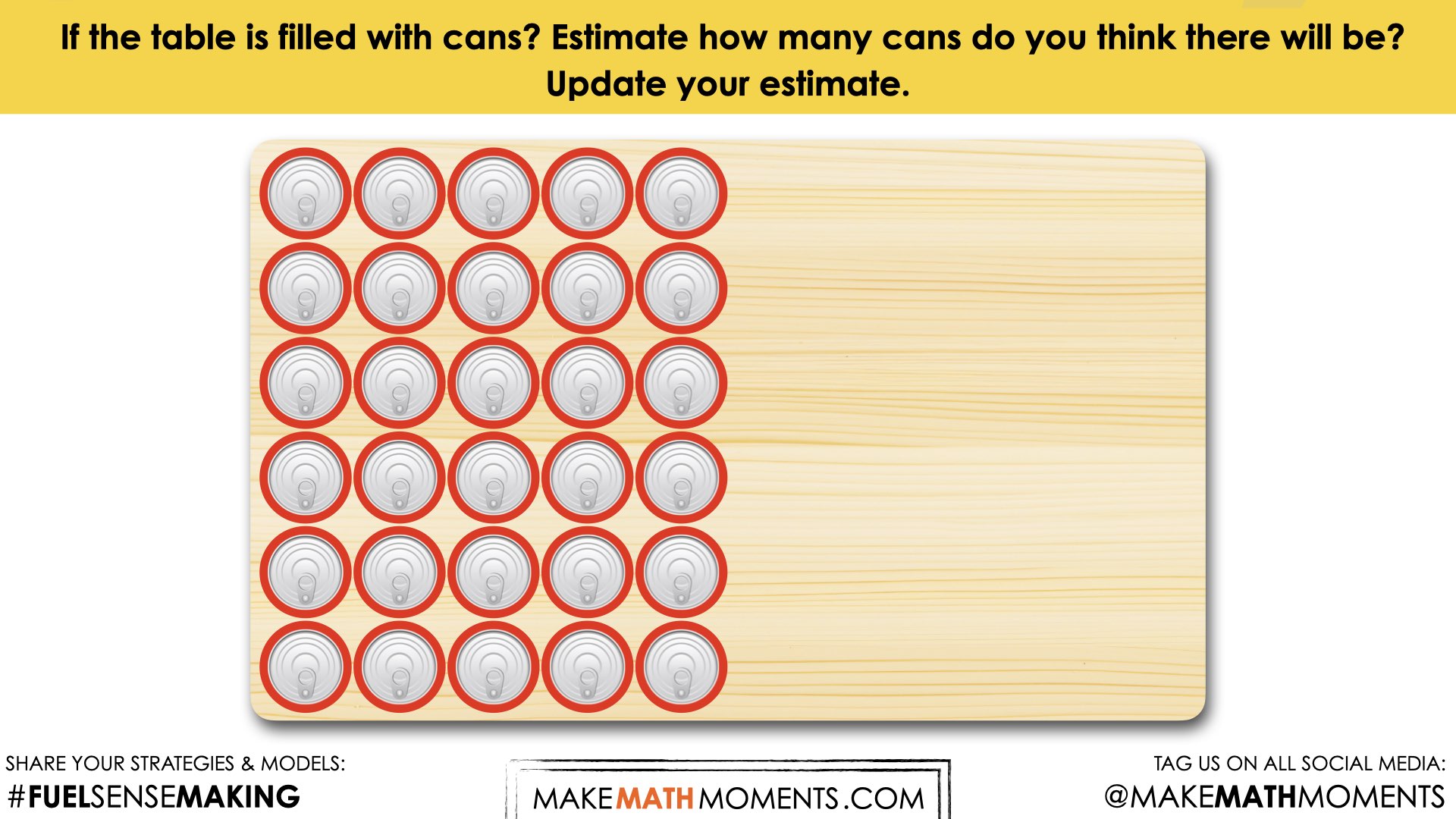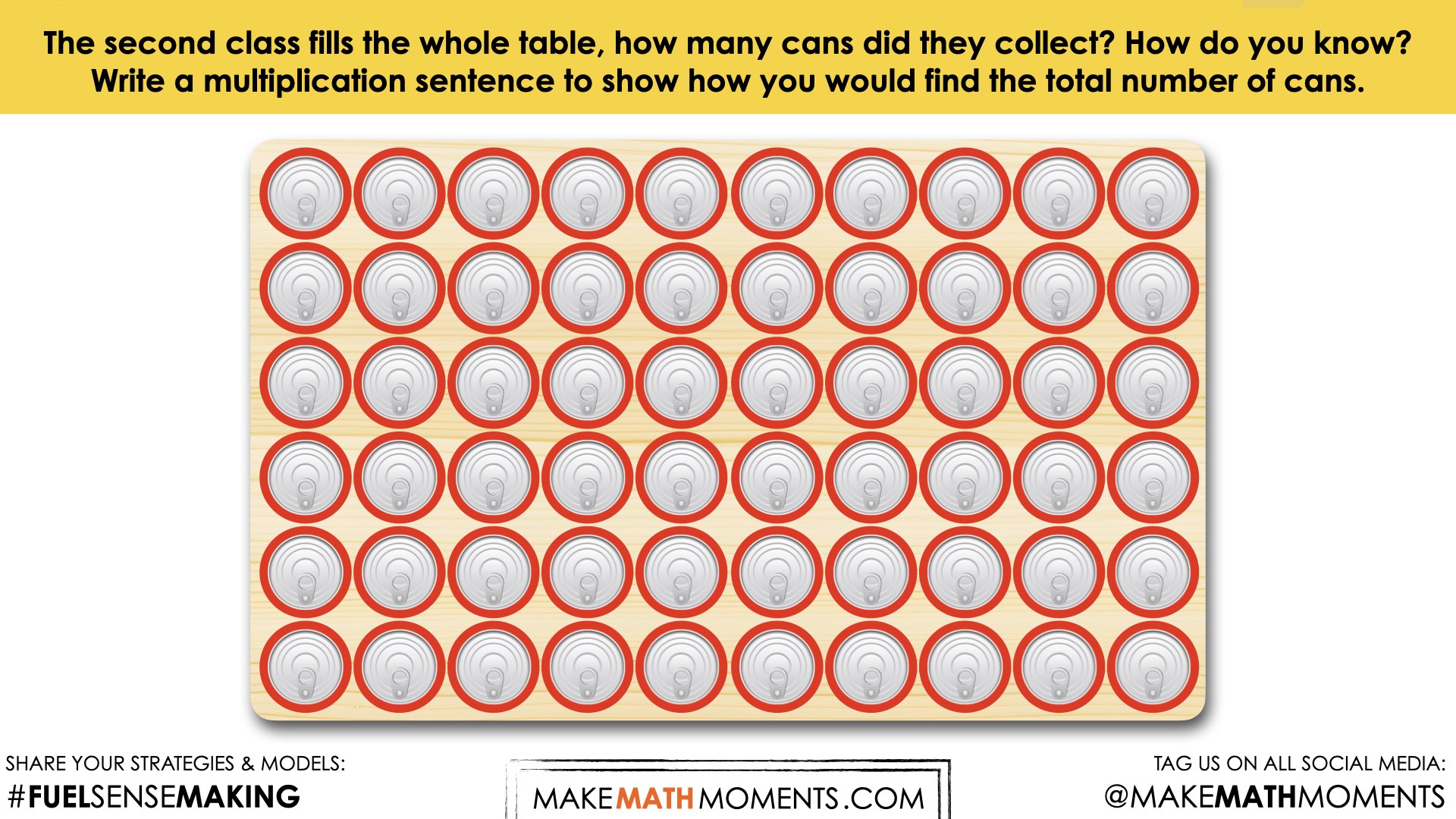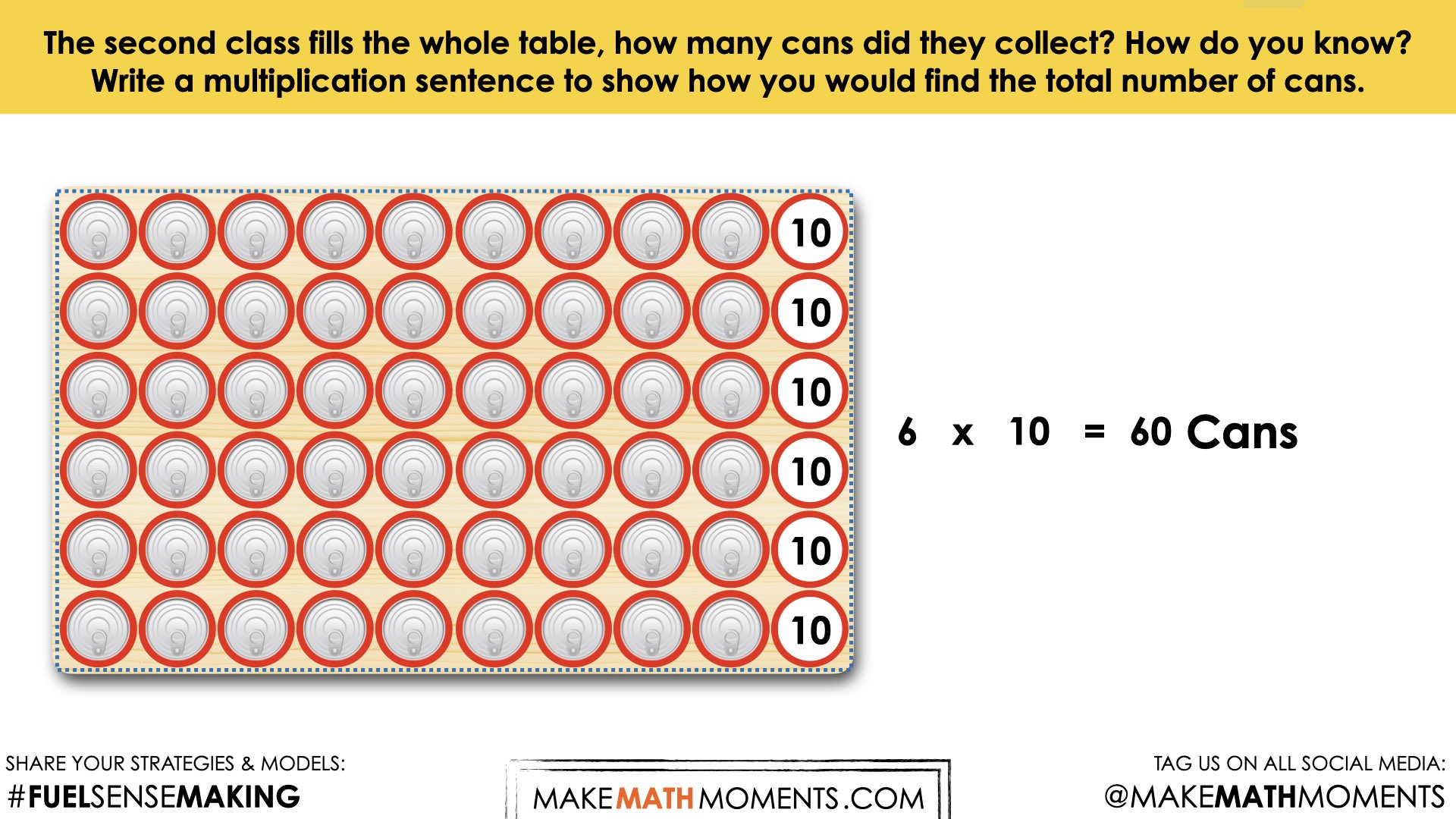CAN DRIVE [DAY 3]
MULTIPLICATION
Real world multiplication lesson leveraging facts of 2, 5 and 10.
Intentionality
Spark Curiosity
Fuel Sensemaking
During Moves
Student Approaches
Next Moves
Consolidation
Reflect and Consolidation Prompts
Resources & Downloads
Educator Discussion Area
Intentionality & Unit Overview

Length of Unit: 5 Days
Access each lesson from this unit using the navigation links below
In this task, students will develop a deep understanding of 1-digit by 1-digit multiplication through the use of the array model. They will begin by leveraging their knowledge of multiplication facts of 5 to build fluency and confidence in solving multiplication problems involving facts of 5 and 10. The array model will serve as a visual and hands-on tool to help students connect their prior knowledge of skip counting and repeated addition to the concept of multiplication.
Students will:
- Build arrays for multiplication problems, understanding how rows and columns represent factors and the product.
- Use the array model to model multiplication facts and explore patterns in products, particularly those involving 5 and 10.
- Begin to explore the distributive property, breaking up larger numbers into smaller, more manageable parts to simplify multiplication.
- Practice multiplication using hands-on tools and visual aids, gradually moving from concrete to abstract understanding.
Spark Curiosity
Estimation Prompt
Another class is joining the can drive!
They are also organizing their cans in rows to make finding the total number of cans easier.
Show students the following video:

During this estimation activity, after the first row of five cans is revealed, ask students to estimate how many cans will be needed to fill the table.
Give students time to discuss their thinking with a partner or in small groups. You can provide sentence frames to guide their conversation.
Possible sentence frames:
- “I know the number of cans is at least _______.”
- “I know that _______ cans are too many.”
- “The number of cans is between ______ and ______.”
- The total number of cans is about ________.
After the 6 rows of 5 cans are revealed, prompt students to update their estimate.
Fuel Sense-making
Crafting A Productive Struggle: Prompt
The second class fills the whole table, how many cans did they collect? How do you know?
Write a multiplication sentence to show how you would find the total number of cans.

Be sure to remind students that they are not to use a calculator to determine the number of cans as using that tool will rob them of this mathematical experience. Students should use a mathematical model in order to communicate their thinking.
During Moves
While Students Are Productively Struggling…
Login/Join to access the entire Teacher Guide, downloadable slide decks and printable handouts for this lesson and all problem based units.
Student Approaches
Student Approach #1: Concrete Array and Counting the Individual Cans
Login/Join to access the entire Teacher Guide, downloadable slide decks and printable handouts for this lesson and all problem based units.
Student Approach #2: Pictorial Array and Skip Counting by 10
Login/Join to access the entire Teacher Guide, downloadable slide decks and printable handouts for this lesson and all problem based units.
Student Approach #3: Reasoning Using Known Facts
Login/Join to access the entire Teacher Guide, downloadable slide decks and printable handouts for this lesson and all problem based units.
Next Moves
Reveal
Show students the following reveal video:
Or consider sharing the final screenshot of the video:

Consolidation
During today’s consolidation, we want to help students connect their strategies to multiplication. We want them to understand that skip counting and repeated addition can be seen as multiplying groups. In this task, we have 6 rows of 10 cans.
Encourage students to share their thinking and help them see the connection between skip counting, repeated addition, and multiplication.
We will also explore the relationship between the facts of 5 and 10. For example, if students estimated there were 30 cans on the table, some may have noticed that the filled table had twice as many. This shows that 5 and 10 have a special doubling relationship.
Reflect and Consolidation Prompts
Provide students an opportunity to reflect on their learning by offering these consolidation prompts to be completed independently.
Exit Ticket: Exploring Multiplication with 5 and 10
Login/Join to access the entire Teacher Guide, downloadable slide decks and printable handouts for this lesson and all problem based units.
We suggest collecting this reflection as an additional opportunity to engage in the formative assessment process to inform next steps for individual students as well as how the whole class will proceed.
Resources & Downloads
Login/Join to access the entire Teacher Guide, downloadable slide decks and printable handouts for this lesson and all problem based units.
Printable Lesson Plan PDF
Videos, Images & Media Files
Apple Keynote Presentation
Powerpoint Presentation
Printable Consolidation Prompts
Educator Discussion Area
Login/Join to access the entire Teacher Guide, downloadable slide decks and printable handouts for this lesson and all problem based units.
Explore Our 60+ Problem Based Units
This Make Math Moments Lesson was designed to spark curiosity for a multi-day unit of study with built in purposeful practice, number talks and extensions to elicit and emerge strategies and mathematical models.
Dig into our other units of study and view by concept continuum, grade or topic!


